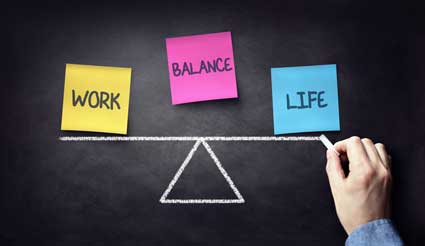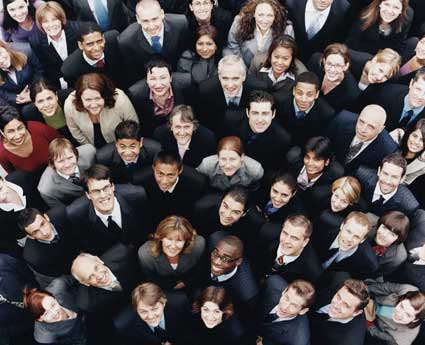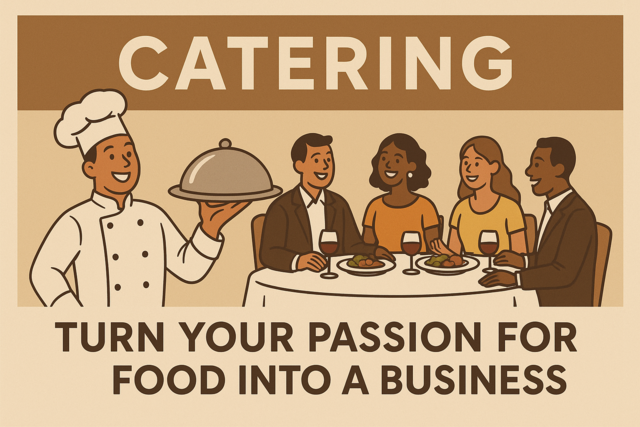| Responsibilities |
Having everything ready at the time the event is to start is a major accomplishment, but your duties are not over just yet. While your client is actually the host of the evening, you must act as a host to your client. Be sure to check in with him or her prior to the start of the event, and be as handy as necessary throughout the course of the event. Some clients are very calm and need little reassurance. Others need a bit more hand-holding. Whichever type of client you have, make certain that you are the perfect host. There may be a few last-minute details that your client chose to take responsibility for but needs help with at the last minute. Have a member of your staff assist your client.
The period just before the beginning of the event is as good as any to collect the final checks for yourself and your vendors. Offer to take care of this for your client.
Food service is the next step. Protocol for food service at an event like this is for the guest of honor to be served first, and then your client is to be served second. Your job is to ensure that the wait staff understands who these two people are.
You need to oversee your wait staff, ensure that the food is served appropriately, and that all guests are being treated well.
| More about Timelines |
Q: You said something about creating a "timeline"? What is that?
C: It is the bible, the entire essence of the event, a detailed layout of everything for prepping for when it comes to executing the event, all the way to shipping out the leftovers to corporate headquarters. It is an ongoing, changing, working document that is constantly updated and sent out to all the vendors prior to the event so that the line of communication is seamless. For example, on Tuesday morning at 10 a.m., Tri-Rental is going to come and drop off the 30 72-inch tables, and here is the schematic�There will be six chairs at table one, and this is the tablecloth that needs to be on table one, and here are where the centerpieces go. It is a detailed, over-the-top timeline that gives us structure with flexibility because this way everyone would know what is going on at all times.
Q: And part of your job is to create the timelines?
C: With communication with the client, I decide who sits where and it is up to me to make sure that is communicated and executed to perfection.
Q: How involved can clients be with their event?
C: They can be as involved or uninvolved as they want, that is completely up to them.
Q: Are you different that way, from other event planners? Some people are more controlling than others.
C: I think a lot of it is, being a control freak can easily happen, and a lot of times clients will second-guess you when they have more control over an event�. That can create more work when they are involved. But it is up to them to experience what it is like to work an event for the first time. When I have a repeat client, they tend to let go and trust me more, but event planners can be control freaks because it is frustrating that it is more work to have to explain every step. We have to understand, this is always about the client's event, not about my portfolio. It is about their memory�.That is the bottom line.
| Event Duties |
If you have done your job well, you will be ready for the event. When the event is large and likely to be very intense, it is best to arrive a day or two ahead of time so that you can be familiar with your surroundings and meet the people you will be working with. Have your final pre-planning meeting with all the key people, including the sales manager, the catering manager, the audiovisual person, and the facility planner. Anything that needs to be changed must be arranged at this meeting because it is time for the show! If you have an assistant or two who can speak for you and are authorized to make decisions, be sure to introduce them to all the venue personnel.
You should establish a chain of command for any disruptions or issues that arise as the event begins. Review your timeline, and make sure you have all the contact information for all the key people involved in the event. Double-check that all the materials and supplies you have ordered have arrived. Doing this ahead of time gives you the luxury of being able to look for anything that is missing long before you actually need it.
Familiarize yourself with the layout of the venue. If it is a small event, this will take little time, but if it is being held at the MGM Grande in Las Vegas, there are numerous meeting rooms that will need to be inspected and this will take time. Set up a small office area for yourself. Again, this will be commensurate with the size of your event: a small area by registration if it is a small event, or your hotel room if it is a large event.
Hang banners and directional signs. Get information about the nearest business center, florist, caterer, grocery store, etc. There is a strong possibility that you may need them. Have all checklists ready for each vendor: caterer, floral designer, tent company, chair rental company, electricians, musicians, etc. Your timeline should have the time and location for each of these meetings.
Check each room less than an hour prior to a breakout session or meeting to ensure that the electricity works, the sound system is functional and the air conditioning is working properly. One floral designer brought her carefully preserved arrangements into a banquet hall. The client had specifically ordered tulips and they were to remain closed until the event began. Unfortunately, the banquet hall temperature was 85 and the tulips were shocked into opening too early. By then it was too late to do anything. Had the temperature of the room been checked in time, such a disaster could have been averted.
While the sessions are being held, there is time to check on the next event, usually refreshments. Ensure that the hot drinks are hot, cold drinks are cold, and that there are adequate supplies of snacks for all participants.
If your event is more than one day, be sure to review the master bill for each day while the events of that day are still fresh in your mind. This way, you can address any problems or discrepancies immediately rather than waiting a couple of days when no one's memory is fresh anymore.
| Post-event Duties |
This is the time when you congratulate yourself on a well-run event. Then you turn to the last details that you need to address. Be sure that all vendors have received final payment for their services. Have a debriefing meeting with your staff and personnel to evaluate what went well and what could use some change. Make a list of people to whom you will write personalized thank-you cards and get started on that immediately. All such notes need to be sent out within a week.
Evaluate your event, either formally or informally. Did you meet your goals and objectives? Did your nonprofit realize the amount of money desired? What did you like about this event? What did not work and should be changed?
Create a final report of the event. This report can be used in your follow-up meeting with your client, and it can be used for future events. Include all the pertinent information about your event, including but not limited to:
-
event name and date;
-
goals and objectives;
-
number of attendees;
-
number of rooms;
-
food and beverage summary;
-
evaluation;
-
marketing materials;
-
handouts and agendas;
-
timelines and checklists;
-
budget estimate and real costs;
-
list of personnel and volunteers;
-
vendor list with numbers;
-
copies of all invoices.
Types of Events: Corporate
Events are happening all over the world on a daily basis, and the corporate world hires event planners for everything from off-site meetings to weeklong conventions held in various cities throughout the world. Each event, like a live stage production, must be planned down to the most minute detail because there are no second chances. There is no opportunity to do it over. It is necessary to plan, prepare, and preview in your mind what the event will entail, from beginning to end.
| Corporate Planners |
Corporate events require a different kind of planner. A corporate event planner is the central figure in a corporation's events, and all details and communication are sent and received by that individual. Because corporate planners do not always attend the events that they plan, they must communicate effectively with two other people. All the details are handled by these three people. The first person is the corporate planner, who organizes the entire event. The second is the on-site contact, who takes over and is present at the event. The third is the facility planner, who usually is an employee of the venue where the event is to be held.
| Event BEO and Resume |
Once the corporate planner organizes the event, control is turned over to the on-site contact or host who will manage the event. Communication is essential to a smoothly run event. In the corporate world there are two documents that contain all communication about the event.
BEO: The BEO, or Banquet Event Order, outlines all the details of the event. This will include all instructions for the evening, the speaker, the entertainment, and the food and beverage.
Resume: This is a document that describes the hotel assignments for the staff when a group of people are traveling to an event site. This is used by the facility planner to keep track of in-room charges, length of stay, and Very Important Person (VIP) staff.
| Purpose and Budget |
Any corporate event, large or small, will have a budget. Even a small event requires a significant financial outlay. If the purpose of the event cannot be achieved within budget, it might be better to wait until the budget is bigger, or it needs to be restructured to fit into the budget and achieve the purpose. In order for the event to be successful, it must meet these two criteria:
-
Purpose: what your client needs.
-
Budget: what your client can spend.
| Goals and Objectives |
Corporate events typically have a solid business reason behind them. Some of the possible goals and objectives that you may wish to achieve with a corporate event could be among the following:
-
receive accreditation and certification;
-
attract new members;
-
celebrate an achievement;
-
conduct business;
-
develop;
-
educate;
-
entertain;
-
explore;
-
gain knowledge, information, and/or publicity;Want to learn more? Take an online course in Special Events Planning.
-
have fun;
-
improve skills;
-
Inspire and inform;
-
Introduce like-minded people to one another;
-
Introduce new members of the board or staff;
-
make a decision;
-
make a profit;
-
motivate;
-
launch a product;
-
advance professionally;
-
reward;
-
solve problems;
-
support;
-
train;
-
show appreciation for employees, clients, and/or suppliers;
-
stage an awards banquet/dinner;
-
recognize a brand name;
-
mark a milestone achievement.
| Estimates |
Once you have established the purpose and the budget for the event, it is time to get estimates for everything that you may need to plan the event. The following list will give you an idea of the amount of footwork you will need to do to get estimates needed for your proposal:
-
accommodations;
-
invitations;
-
transportation;
-
venue rentals;
-
rehearsal costs;
-
food/beverage;
-
floral design;
-
d�cor;
-
music;
-
entertainment;
-
speakers;
-
staging;
-
audiovisual;
-
lighting;
-
apecial effects;
-
photography;
-
place cards;
-
menus;
-
gifts;
-
insurance;
-
security;
-
labor cost;
-
power cost;
-
promotional material;
-
communication costs;
-
translation;
-
shipping/handling;
-
customs;
-
staffing;
-
miscellaneous.
| Little Black Book |
As you gather the estimates for each of the above categories, be sure to get the contact information for every venue and every vendor you speak with. You will be creating a Little Black Book that will become the absolute lifeblood of your business. No bit of information is too insignificant. You never know when you are going to need information about something. With your growing list of contacts, the information you need is right at your fingertips.
| Corporate Needs |
Each function is different. Some events need a private room; others need a conference room. Some need a projector and screen for presentations. Others need the capability to make a video-conference call. Function rooms often are outfitted with special fixtures, and it is important for you to know what each type of room offers.
Conference rooms: These typically are located in hotels or other places that are designed for business usage. Such rooms often will have a large boardroom-style table, a specialized telephone system, Internet capabilities, and more. These rooms are where meetings are held and should either have a business center in the room or one nearby. Conference rooms almost never are decorated because their use is for function. Some conference rooms are organized in more of a classroom setting for off-site trainings.
Private rooms: These are typically found in restaurants and are more for a corporate entertainment event, such as a breakfast meeting, lunch, or business dinner. Private rooms are used both for business and for social functions and range in size to accommodate 10 to 350 people. The larger ones usually are referred to as ballrooms.
| Supplies and Equipment |
| Nonprofit Events, Galas, and Fundraisers |
This type of event is a little bit of a combination between a pure business and a social event. The purpose of such events is to:
-
support research;
-
get media exposure and attention;
-
increase public awareness;
-
increase volunteer numbers;
-
attract new sponsors and supporters;
-
raise money or solicit donations;
-
develop sponsor lists;
-
develop invitation lists for future events.
Nonprofit events can range from a morning walk-a-thon to raise awareness for asthma to a star-studded gala event requiring formal dress for hundreds of participants. There are three types of planners in this particular niche: 1) the party planner, 2) the facilities planner, and 3) the fundraising planner.
Party planner: If you are a party planner being asked to plan a gala event, you will take on the task of seeing to every detail from start to finish, from securing the venue to participating in the event itself. You will oversee the creative team, the production team, and the staffing of the event. You may be constrained a little bit if this event is an annual event and has a previously established budget, theme, and venue.
Facilities planner: Certain venues have a planner on staff with whom you will have to work and coordinate the function. That person's responsibility is to oversee events that are held at the planner's particular venue. As the lead planner, you will collaborate with the facility planner and your client. You will confirm the specifics of the venue, such as when things are to be delivered, set up, the time the event starts, and how many people will be attending.
Fundraising planner: Many fundraising companies will use their own planner to team up with a party planner and a facilities planner in order to put together a gala event. The purpose of these events is to raise money and awareness for a particular charity. Budgets are of paramount concern in these events.
Rather than seeing other planners as competition for you, embrace the opportunity to work with these other planners. This is a great way for you to collaborate with other event planners and get your name known. It is wise to be known as a team player rather than a solitary planner.
When you are working with a group of event planners, it is so very important that everyone knows his or her responsibility. This is why big events usually have a number of planning meetings, with timelines and updates being sent on a regular basis, usually via e-mail.
Product donations: Nonprofits are always looking for ways to bring in more people, potential sponsors, and certainly more donors by having bigger and better events each year. To keep within the budget, you need to work with the nonprofit organization to see how you can get product donations to help offset some of the costs of the event. Typically, when a physical activity such as a walk-a-thon or a three-day run for breast cancer is planned, a sports beverage company might be willing to donate its vitamin water to the event in return for free exposure and a tax benefit. The idea is to make it a win-win situation for both the nonprofit organization and the donating organization.
| Entertainment and Speakers |
























